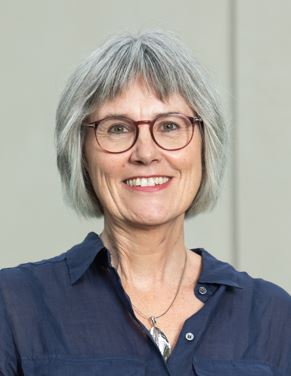Despite some comments, and a bit of discussion around certain phrases that will be finalised by management at a later stage, the University Board had no problems getting behind the new climate and environmental strategy. “Impressed”, “Very good”, “Well carried out” and “Thumbs up” were among the initial feedback from the board members.
Read the new strategy here (Norwegian only, English to follow)
Will be a good tool for work to come
Mette Halskov Hansen is Vice-rector for Climate & the Environment and Cross-Disciplinarity. She has headed up the process towards the strategy being approved by the board after the working group submitted its draft strategy in June last year.

– I am pleased that we now have a new strategy and very happy with the strong support from the board, she says.
Halskov Hansen also appreciates the board commenting on how the strategy seems well anchored at the university.
– In addition to having been discussed several times by the board, the strategy has also been on formal consultation at UiO?s units as well as having been the topic of many meetings in internal fora. Staff and students have been able to provide individual input through a net-based form, and the draft was discussed at an open debate meeting last fall, she says and adds:
– I am convinced that the strategy will be a good tool for further developing the climate and environmental work at UiO.
A concrete action plan on its way
Suggested measures from the original draft strategy was omitted at an earlier stage of the process. Work has started to develop a concrete action plan for all core activities that will be finalised before the summer. The action plan will also be well anchored among staff and students, among others through formal consultation and an open debate meeting.
– It is for the board to work on a strategic level, not to manage the university in a detailed way. That is why we have chosen this approach – with a concrete action plan following the strategy and being directly linked to the goals of the strategy, explains Halskov Hansen.
– There will be several measures related to each of the strategy?s goals. Among others, we are suggesting to establish more honours certificates within the fields of climate, environment and sustainability, and to integrate sustainability as a subject matter in our pedagogical education. One of the first things to happen is to ensure clear and easily accessible information about our study offers related to climate, environment and sustainability. Furthermore, we are going to develop continuing and further education around these topics. We are also going to work on improving recycling and green procurement, and we are suggesting that people have to pay for parking their private cars at UiO. These are just a few examples, and we are looking forward to the upcoming debate.
Stands out by being comprehensive
The new climate and environmental strategy is a comprehensive one, meaning that it will cover all of UiO?s core activities: research, education, dissemination, innovation, and operations.
– It is ambitious but also necessary. Climate and environmental challenges cut across both disciplines, sectors, and national borders. We will not be able to contribute in a substantial way to fighting climate change and the loss of nature and biodiversity if we do not work systematically within all core activities, says Halskov Hansen, and adds:
– Our approach to this is, by the way, in accordance with new advice from the EU regarding the role of universities in sustainability work, as well as in what has so far been “leaked” from a new UNESCO report to be submitted at the SDG Bergen conference tomorrow. The report highlights that if the world is to reach the sustainable development goals by 2030, sustainability needs to become a core activity and overall goal for universities and university colleges.
.jpg)